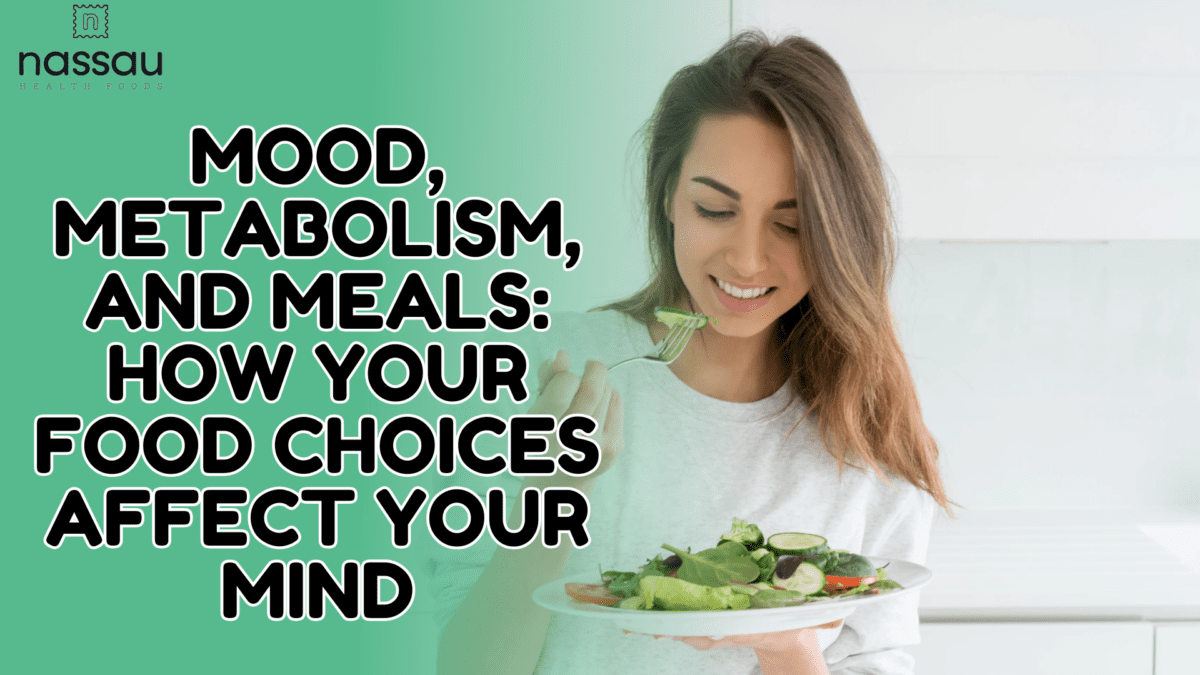“The food you eat can be either the safest and most powerful form of medicine or the slowest form of poison.” – Ann Wigmore
Are you often tired by 3 PM? Do you reach for another cup of coffee just to make it through the day? The answer to your energy problems might be sitting right on your plate.
What We’ll Cover
- Why your food choices might be making you tired
- How organic food can boost your energy
- Simple swaps to start your organic journey
- Budget-friendly tips for going organic
- Real stories from people who changed their energy with food
The Energy Problem We All Face
Meet Sarah. She’s a busy mom of two who works full-time. By mid-afternoon, she feels completely drained. She thinks this is normal. It’s not.
Sarah’s story is like many of ours. We push through each day, thinking that feeling tired is just part of being an adult. Dr. Casey Means, author of “Good Energy,” has news for us: it’s not normal, and our food choices might be the hidden culprit.
Your Body is Like a Car
Think about your body like a car. The food you eat is the fuel you put in the tank.
Conventional food is like putting cheap, low-quality gas in your car. It might keep the car running, but over time, it leaves gunk in the engine. Your car has to work harder and uses more energy just to run normally.
Organic food is like premium, clean fuel. Your engine runs smoothly, efficiently, and lasts longer.
Why Your Food Might Be Making You Tired
Did you know that the average strawberry can have up to 40 different pesticides on it? These chemicals aren’t meant to be in our bodies. When we eat them, our body has to work extra hard to get rid of them.
This is where our energy goes! Instead of using energy for living our best life, our bodies are busy cleaning up toxins from our food.
Dr. Means explains that conventional foods can drain your energy in four big ways:
1. Pesticide Cleanup Duty
When you eat conventional foods with pesticides, your liver works overtime. This is like having a cleaning crew that has to work 24/7. It gets tired!
2. Missing Nutrients
Studies show that organic foods often have more vitamins and minerals than conventional foods. These nutrients are the building blocks your body needs to make energy.
3. Inflammation Firefighting
Many chemicals in conventional foods cause inflammation in your body. Inflammation is like having small fires that your body constantly has to put out. This takes a lot of energy!
4. Blood Sugar Rollercoaster
Processed conventional foods can send your blood sugar on a wild ride – up, then crashing down. These crashes are what make you feel tired and hungry just a few hours after eating.
The Organic Energy Solution
When Sarah switched to organic foods, something amazing happened. Within just two weeks, her afternoon energy crashes started to disappear. By one month, she stopped needing that second cup of afternoon coffee altogether.
What changed? Her body wasn’t fighting against food toxins anymore. It could use that energy for living instead!
The Science of Organic Energy
The secret to why organic foods give you more energy is found in tiny parts of your cells called mitochondria. Think of mitochondria as tiny power plants inside every cell of your body.
These power plants need the right materials to make energy. They work best when they get:
- Clean, toxin-free nutrients
- Lots of vitamins and minerals
- Foods that don’t cause inflammation
Organic foods check all these boxes! They give your cellular power plants exactly what they need to make the most energy possible.
Your 7-Day Organic Energy Challenge
Ready to feel the difference? Try this simple 7-day challenge:
- Day 1: Swap your breakfast to organic options (organic eggs, oatmeal, or fruits)
- Day 2: Add one organic vegetable to lunch and dinner
- Day 3: Switch to organic meats or plant proteins
- Day 4: Try organic snacks instead of processed ones
- Day 5: Make one meal completely organic
- Day 6: Try organic versions of your favorite treats
- Day 7: Compare your energy to how you felt a week ago
Many people notice a difference in their energy levels within just a few days!
The “Dirty Dozen” – Start Here!
If you’re wondering where to start, focus on the “Dirty Dozen.” These are the 12 fruits and vegetables that typically have the most pesticides when grown conventionally:
- Strawberries
- Spinach
- Kale
- Apples
- Grapes
- Peaches
- Cherries
- Pears
- Tomatoes
- Celery
- Potatoes
- Bell Peppers
Just switching these foods to organic versions can cut down the toxins in your diet by up to 80%!
“But Organic Is Too Expensive!” – How to Go Organic on a Budget
Let’s be real – organic food often costs more. But there are smart ways to make it work for any budget:
1. Start Small
Begin with just the Dirty Dozen foods you eat most often.
2. Shop Seasonally
Organic foods in season are usually cheaper and fresher.
3. Check the Freezer Section
Frozen organic fruits and vegetables are often cheaper than fresh and just as nutritious!
4. Look for Sales and Stock Up
When organic items go on sale, buy extra and freeze them.
5. Join a CSA
Community Supported Agriculture programs let you buy directly from local organic farmers at better prices.
6. Grow Your Own
Even a small pot of organic herbs on your windowsill cuts costs.
Remember: The money you spend on organic food might save you money on energy drinks, coffee, and even healthcare costs down the road!
Real Stories, Real Energy Changes
Michael’s Story: Michael, a teacher, could barely stay awake to grade papers after school. After switching to organic lunches, he found he had energy left for evening activities with his family.
Lisa’s Story: Lisa struggled with brain fog during important work meetings. Two weeks after cutting out conventional dairy and switching to organic, she noticed she could think more clearly all day long.
Tom’s Story: Tom, an athlete, hit a plateau in his training. When he switched to an organic diet, his recovery time shortened, and his performance improved.
Beyond Organic: The Complete Energy Picture
While organic food is powerful, Dr. Means explains that it works best as part of a complete “energy ecosystem”:
- Sleep: Aim for 7-9 hours of quality sleep
- Movement: Daily activity that energizes you
- Stress Management: Find ways to calm your stress response
- Connection: Spend time with people who lift you up
- Environment: Reduce toxins in your home and personal care products
When you combine all these with organic eating, the energy benefits multiply!
Simple Swaps to Start Today
Ready to try organic but not sure where to start? Here are five super-easy swaps:
- Morning coffee → Organic coffee (conventional coffee is heavily sprayed with pesticides)
- Apple for snack → Organic apple
- Conventional eggs → Organic eggs
- Regular peanut butter → Organic peanut butter
- Conventional milk → Organic milk
Even these small changes can reduce your toxic load and free up energy!
How to Know If It’s Working
When your food starts healing instead of hurting, you’ll notice:
- More stable energy throughout the day
- Fewer cravings for sugar and caffeine
- Better sleep quality
- Clearer thinking
- Improved mood
- Fewer headaches
- Better digestion
Keep a simple energy journal to track how you feel each day as you make changes.
The Bigger Picture: Why Organic Matters Beyond Energy
Choosing organic isn’t just good for your personal energy – it’s good for the planet’s energy too! Organic farming:
- Uses less energy to produce food
- Builds healthier soil
- Supports more wildlife
- Reduces water pollution
- Creates safer conditions for farm workers
Every organic choice you make sends a message about the kind of food system you want to support.
Your Next Steps to Good Energy
The journey to better energy through organic food doesn’t have to be complicated. Start with these simple steps:
- Observe: Notice your current energy patterns throughout the day
- Choose One Change: Pick just one organic swap to make this week
- Track: Pay attention to how you feel after a few days
- Build: Gradually add more organic foods to your meals
- Share: Tell others about the changes you notice
The Most Important Question
Dr. Casey Means asks us to consider: “Is your food healing you or hurting you?”
The answer can be found in how you feel hours after eating. Energy crashes, brain fog, and tiredness are all clues that your food might be hurting rather than healing.
By choosing organic foods, you’re choosing foods that work with your body to create energy rather than drain it. You’re choosing healing over hurting.
Think of it as an investment in your energy bank account. Every organic meal is a deposit that pays dividends in how you feel and what you can accomplish each day.
Ready to start your organic energy journey? Which food will you swap first? Comment below and let us know how it goes!
🌱 Visit us in-store or online to start your journey toward better energy and vibrant health. https://nassauhealthfood.com








